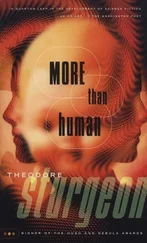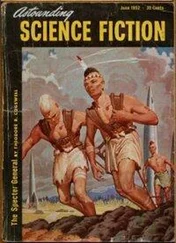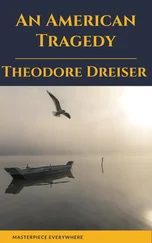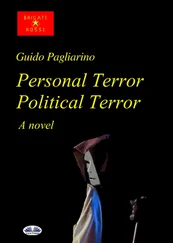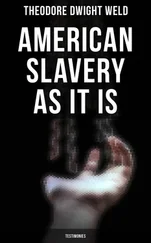Early one morning, as dawn filtered through the school windows, Kulik sat behind his desk, pen in hand, buried in paperwork. Unable to sleep, he had been up since four that morning, flipping through textbooks, writing reports, and reviewing assignments. With the stove refilled with firewood, the warmth beginning to penetrate the room, he started to grow drowsy. His eyelids became heavy, and in no time he nodded off. When he woke, he glanced at his watch and saw it was only seven forty-five; he had been asleep for no more than a few minutes. The sun was rising on the horizon and soon the school bell would ring.
As Kulik delved back into his work, he heard noises outside. There was an abrupt screech, followed by the low humming of a motor car. Peering out his window, he was disturbed by what he saw: a big black car parked in front of the school gates. The doors were closed, and the windows were tinted green. It was not an ordinary auto, but an NKVD car; the people called it the “Black Crow.” Black Crows could be seen everywhere these days driving through towns and villages. Kulik had seen many slinking up and down the streets of Pinsk — Sovietskaya, Karalyna, in and around Market Square, at first only in the dark of night, then eventually in broad daylight. They never seemed to rest, stopping only briefly in the rear of NKVD headquarters to dump off their load of victims before returning for more.
Was the Black Crow coming to get him? Openly, in daylight? He backed away from the window and waited. He heard the car doors open and slam shut, and the sound of voices, then footsteps coming closer and closer. They were already in the school, walking down the corridor, gradually and evenly, coming to get him. And suddenly there it came, the dreaded knock on the door. On the threshold stood three men: Yeliseyenko, Iofe Nicel Leyzarov and Simon Stepanovich Sobakin.
Sobakin stood in the middle, with Iofe Nicel on his left and Yeliseyenko to his right. Without moving, dressed in heavy gray overcoats and knee-high leather boots, they cast quick glances around the room. There was a constrained silence that seemed to last forever. Finally Kulik blurted, “Welcome to the school, comrades.”
Sobakin pushed his way into the room. “Good morning, Comrade Kulik.” He spoke brusquely; the visor of his cap was pulled down over his forehead and shaded his eyes. “We’ve come on official state business. We’re conducting an investigation of the school and would like to see your documents, pass books, and your teaching certificate.”
Kulik pulled a folder from the bottom drawer of his filing cabinet and handed it to Sobakin, who examined every page carefully, deliberated briefly, and passed them on to Leyzarov.
“Hm …” Leyzarov muttered, scratching his head. “Yes, everything appears to be in order.” He scanned the last page, and to Kulik’s great alarm, quickly folded the documents in half and slipped them into his satchel.
“Now, Comrade Kulik,” Sobakin again, “we’d like you to accompany us on an inspection of your school. We trust you’re running it in true Soviet fashion and that everything is in accordance with Soviet law.” Turning, he stepped out into the corridor, paused, and set out to the right, with Leyzarov and Yeliseyenko close behind. Kulik trailed by a few steps.
In the corridor, they stopped to examine the bulletin board. They seemed pleased with it. At the top of the board, in the center, was a large picture of Stalin, and directly below it an article on a recent demonstration in Red Square. On the left was a list of about twenty honored kolkhoz workers from the region.
The men moved on to the grade two classroom. Haya Fifkina stood before the blackboard, giving instruction in arithmetic. Today, in a navy skirt and a freshly ironed white cotton blouse, with her hair twisted back in a loose braid, she looked particularly presentable. Using thick, bold strokes she carefully and slowly wrote 12+9=? Holding a ruler in her left hand and tapping her right with it, she called out:
“Who knows the answer? Georgi?”
No answer.
“Tolik?”
From somewhere a thin little voice: “Twenty-one.”
“Very good, Tolik.” Turning back to the board, Haya proceeded to write 14+11=? “Who knows the answer? Ohrimko?”
Ohrimko winced and fidgeted in his seat. He stared down at his hands with great intensity and started counting with his fingers. Finally he looked up and said, “Twenty-five.”
“Good. Very good.”
It was when Haya was writing another equation on the board, that she noticed the three government officials standing in the doorway. Their unexpected appearance completely frazzled her, and she gasped and jumped back, knocking against her desk. She had no idea how long they had been watching her, and being caught unawares made her not only nervous but incapable of thinking straight. She went off into a frantic giggle. Not having the slightest idea of what to say, grasping at anything, she lost all self-control, pointed to the back of the class and shouted:
“That’s him! That’s the culprit I wrote you about! That’s Ohrimko Suchok!”
The children watched her with confused delight, chattering loudly and poking each other. Laughter broke out. One little boy fell off his seat and started to cry, while another sent a slate flying across the room. The class was now in complete uproar.
“Comrade Haya!” Sobakin, stamped his foot in a show of outrage. “Please, collect yourself and get on with your lesson.” Then turning sternly to the pupils, “Quiet! Quiet in the class!”
Taking long, deep breaths, the more Haya tried to calm herself, the more shaken up she became. The children had now gone completely wild and there was no way to calm them.
“Children! Children!” She clapped her hands, trying desperately to restore order. “We are now going to review the alphabet. Repeat after me, A B …” Trembling and gasping, suddenly she broke off. Tears gushed down her cheeks, and she wanted only to escape from the room. Then to her great relief, the bell rang. It was recess. She was saved. The children quickly gathered their belongings, formed a line against the wall, and exited the room.
Leyzarov turned to Haya seriously.
“Comrade Haya, I would like to talk to you. We’re here today because we have a deposition from you. In it you accuse the headmaster of subversive activity and anti-Semitism. You claim he promotes these sentiments in both the school and throughout the village. Is that not correct?”
“Yes,” she squeaked out.
“Do you have proof of your charges?”
“Yes.”
She started to revive. Her voice became stronger, more self-assured. “Yes, I do, as a matter of fact. The children harass me on the street and in the school. They call me beanpole and hurl snowballs at me. Several weeks ago they drew crosses across the classroom floor with chalk to scare me and mock me. They wanted to see if I, a Jewess, would dare touch one with my foot.”
Then breaking down, she began to cry. “The feelings of anti-Semitism are deep-rooted here, no doubt about it, and Comrade Kulik does nothing to smooth them out. On the contrary, the children are not only being encouraged to hate Jews, but they’re being taught acts of subversion.”
“Tell me, Haya,” Sobakin said sharply, “these children who harass you, are they from your class or from the higher grades too? Now let me see. What about this Ohrimko Suchok? I believe he’s a second grader?”
“Yes, and he’s the worst of them all. I wrote to you about him. He’s cunning and deceitful and doesn’t obey any rules. He’s like a wild animal. He sits right over there!”
Sobakin smiled condescendingly. “Your charges are certainly reasons for concern, but it appears to me the real problem lies not in the children, but in your inability to control them. You’re the teacher and therefore you and not the headmaster are responsible for your pupils. From what I see of the situation, you haven’t established any kind of rapport with the children. To put it simply, you’ve failed to earn their respect.”
Читать дальше

